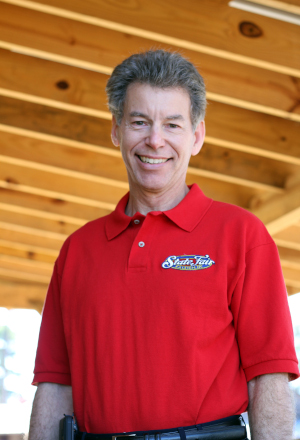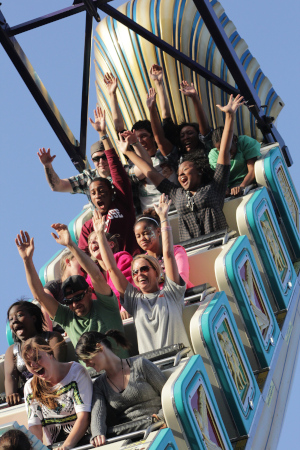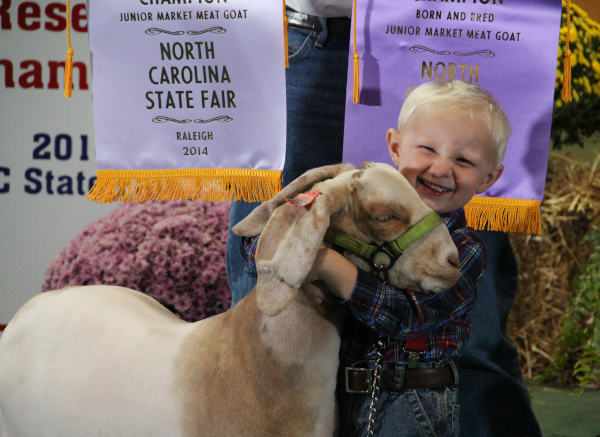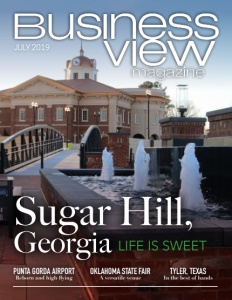The North Carolina State Fair
Here for everyone
Business View Magazine interviews Kent Yelverton, GM of the North Carolina State Fairgrounds, as part of our focus on best practices of American event venues.
The North Carolina State Fair hosts a million visitors every October when it runs for 11 days at the North Carolina State Fairgrounds in Wake County. “The North Carolina State Fair began in 1853,” says Fair Manager, Kent Yelverton, “but it began on a site east of our current location. We moved to our current Fairgrounds in 1928, and that is also when we became a year-round event facility. We currently produce two events in-house each year: the Got to Be NC Festival in May and our annual North Carolina State Fair.” The Got to Be NC Festival is a three-day event highlighting goods, manufacturers, and the culture of North Carolina, while the State Fair, despite its size, is, at heart, a good old-fashioned, agricultural fair.

Kent Yelverton, General Manager
“On top of that, we also work with over 500 promoters each year who lease our facilities to promote their own events,” Yelverton continues. “We have over 344-acres; we have more than 400,000 square feet of indoor, leasable space. We are big enough and able to accommodate events of any size. So we do get a lot of business. We end up with an eclectic mix of events, but our biggest segment is consumer shows. For example, we host things like home shows, and in that case, a promoter would come in and lease one or more of our facilities and then sub-lease space to vendors promoting their products to the general public.”
“Most of our events are indoor events,” Yelverton adds, “but we do have events that expand out of the indoor space into the outdoor space. For example, the Southern Farm Show in February uses all of the indoor space, but also erects five large tents in our outdoor space, as well as using open air space to exhibit large equipment.”
In order to accommodate the extensive slate of events, the Fairgrounds employs 79 full-time, year-round employees, as well as 39 year-round temporary employees, who all work for the state, since the Fairgrounds is a division of the North Carolina Department of Agriculture and Consumer Services. It is, however, a self-supporting organization and does not receive any state funding. Within its own staff compliment, the Fairgrounds has people who specialize in carpentry, plumbing, HVAC, landscaping, and automotive repair, to name a few. There is also an in-house public safety department with certified police officers.
Because of the sheer size of their facilities, Yelverton does not believe there are any direct competitors to what they have to offer. Raleigh does have a large civic center, and North Carolina has smaller local fairgrounds, but nothing that is able to handle the types of events which go on at the Fairgrounds. “To find a place with outdoor and indoor space, multiple buildings instead of one single large floor – that is what gives us our edge,” he says.
The site is old and historic, with a strong history of concert and athletic events, but it is always being updated and improved. For example, the J.S. Dorton Arena was placed on the National Register of Historic Places for being the first building with a cable-supported roof system, and in the last few years, they have removed seats and created wheelchair accessible space and ramps.
“As I mentioned, we moved to this facility in 1928, so we are continually working with old infrastructure,” Yelverton notes. “Much of our investment at this point is invisible to the public but very important to our ongoing operations. We are constantly dealing with older equipment and pipes in the ground, and things that just have to be taken care of. When it comes to the more historic buildings, like Dorton Arena, we are very mindful in how we take care of them. We are trying to be good stewards of the history that was passed down to us.”
 Yet some modernization is necessary. “We have worked extensively in recent years to extend our fiber-optics across the property, for example,” says Yelverton, “so that we can make wireless available for our ticketing as well as our customers. The good news is that we don’t have to worry about maintaining landlines for our vendors use anymore. But we are in a busy part of Raleigh with a lot of competition for bandwidth and for cell service, so we have to constantly work with cell providers and other providers to have the best service that we can have. We have had portable cell towers on site and we have upgraded our fiber pipeline through the property, to increase that fiber distribution across all of our major facilities. So, in any of our facilities that a promoter would come in and lease, we can provide the high-speed internet that they need for commerce. But also our users – particularly our corporate users, which is a growing segment of our business – demand the high tech audio-visual capabilities; the ability to come in and put on whatever kind of presentation they need for the audience that they are here to serve, as well.”
Yet some modernization is necessary. “We have worked extensively in recent years to extend our fiber-optics across the property, for example,” says Yelverton, “so that we can make wireless available for our ticketing as well as our customers. The good news is that we don’t have to worry about maintaining landlines for our vendors use anymore. But we are in a busy part of Raleigh with a lot of competition for bandwidth and for cell service, so we have to constantly work with cell providers and other providers to have the best service that we can have. We have had portable cell towers on site and we have upgraded our fiber pipeline through the property, to increase that fiber distribution across all of our major facilities. So, in any of our facilities that a promoter would come in and lease, we can provide the high-speed internet that they need for commerce. But also our users – particularly our corporate users, which is a growing segment of our business – demand the high tech audio-visual capabilities; the ability to come in and put on whatever kind of presentation they need for the audience that they are here to serve, as well.”
The Fairgrounds is also trying to be green and sustainable. They have a robust recycling program through their waste provider, recycling over 7,000 tons of co-mingled recycled materials per year. They also recycle over 10,000 gallons of fryer oil, a lot of that during the annual fair. One building’s HVAC system runs on B20 soy-based diesel, as do the carnival rides at the fair. And last but not least, the facility has moved from branded plastic to recycled paper cups.
“All of this being said, the annual State Fair is certainly our largest event and our largest revenue generator,” says Yelverton. “As a division of the Department of Agriculture, it is an agricultural fair, so we have a very large livestock show. And we also have the largest assembly of portable amusement rides in North America at right around 100. We have a million visitors over 11 days and on weekends we have in excess of 150,000 visitors to our Fairgrounds. So, we really become one of the largest cities in North Carolina during that period of time with all of the needs that those visitors have in terms of amenities, safety, and security. During the fair, we have over 600 employees. And we constantly try to make it bigger and better as well. We are excited this year that we are bringing in the largest mobile Ferris Wheel in North America. It is 155-feet in diameter, and we are looking forward to promoting around that attraction this year.”
While weekends at the Fairgrounds are almost always full, “There are still spaces in between,” Yelverton admits. “And that is the part of our business that we are trying to grow – weekday rentals by local businesses. Whether that be for trade shows, or customer appreciation, we can handle anything. We do want to make sure that what we are booking makes sense for who we are, and we hope to fill those spots with events that work well with our operation and what we hope to accomplish.”

“I feel the main message we want to get across is that we are here for everyone,” Yelverton concludes. “If you are looking for a place to hold your event, we have not only the facilities but also the expertise and the experience. We have professionals on hand who can help you figure out what you need and how to do it. We are in the business of providing venue services, and we want people to seek us out and see what we can do to accommodate their needs.”
AT A GLANCE
WHO: The North Carolina State Fair
WHAT: A yearly agricultural fair at the North Carolina State Fairgrounds
WHERE: Wake County, North Carolina
WEBSITE: www.ncstatefair.org
PREFERRED VENDORS
Johnson Automotive – www.johnsonautomotive.com
Johnson Automotive, headquartered in Raleigh, NC, helps tens of thousands of NC, MD and FL residents enjoy an exceptional vehicle purchase and ownership experience online and in the showroom.






